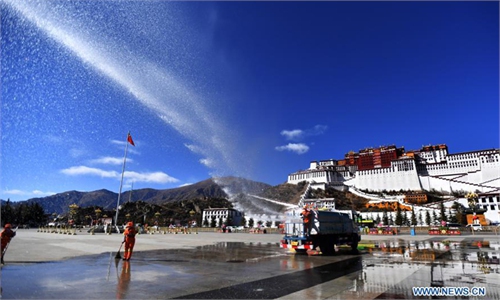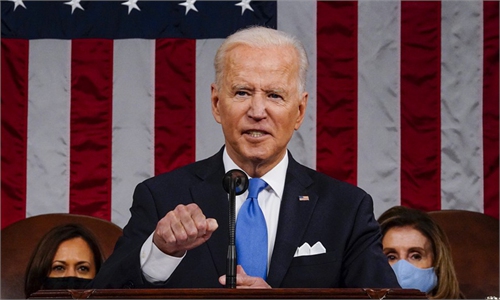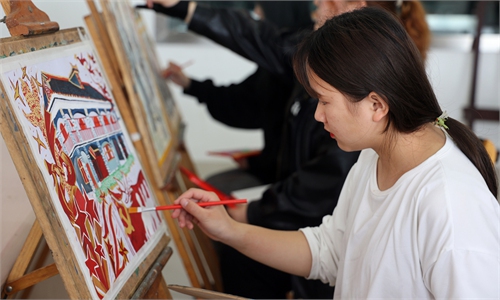Biden govt wants to ‘weaponize’ democracy
Taiwan authorities’ participation ‘likely to trigger similar 1995-96 tension’
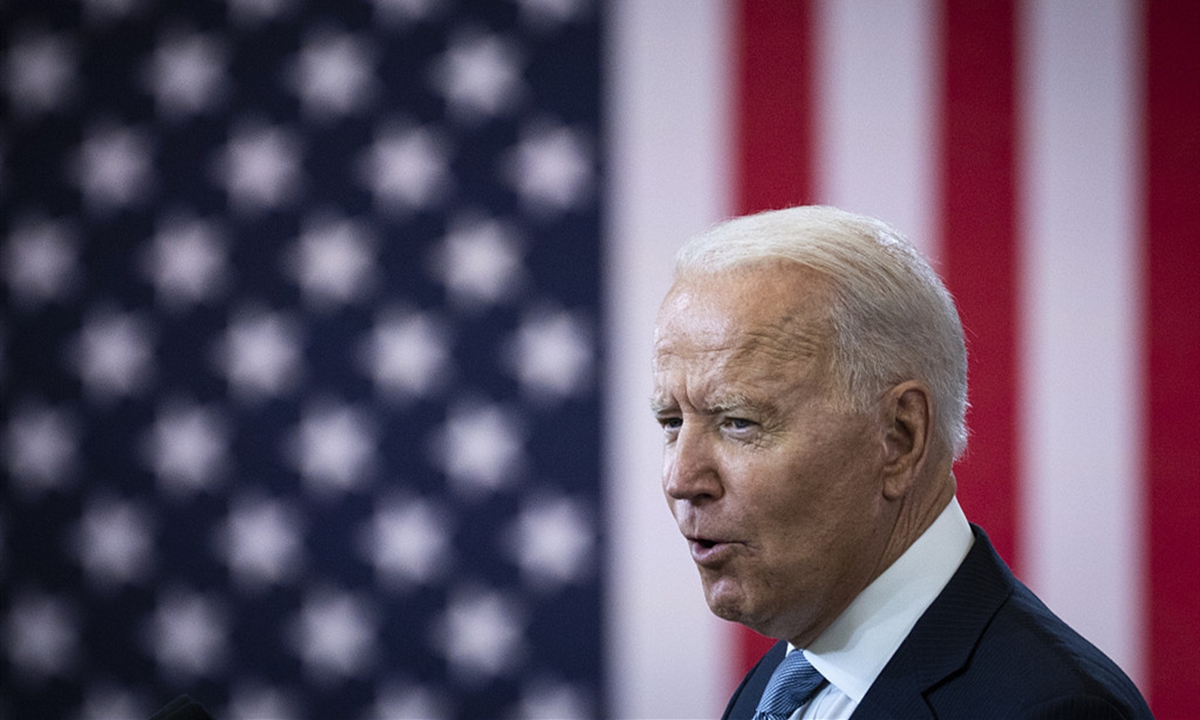
Biden Photo: VCG
The "Summit for Democracy" to be convened by the US serves only its goal of lulling certain countries together to challenge China, creating deeper confrontation between different ideological camps, which shows Washington's tendency to "weaponize democracy, and insult the word 'democracy,'" analysts believed.
US President Joe Biden is seeking to bring together heads of state with major figures in philanthropy, civil society and the private sector "from a diverse group of the world's democracies" from December 9 to 10 this year, the White House said in a statement Wednesday, saying the summit will revolve around "defending against authoritarianism, fighting corruption, and promoting respect for human rights."
Although China was not mentioned in the White House statement, Biden particularly pointed it out in his original campaign document pledging to hold the summit.
"Technology companies, which benefit from the fruits of democracy, should make concrete pledges for how they can ensure their algorithms and platforms are not empowering the surveillance state, facilitating repression in China and elsewhere," Biden said on his campaign website in November 2020.
The White House has not provided details of those invited to the summit. Since the announcement was made, media in the island of Taiwan began to play up the island's "possible participation," as US Secretary of State Antony Blinken claimed that he will invite the island to participate in the summit.
Experts said that this is part of Washington's effort to hijack the island of Taiwan on its chariot to confront Beijing, and warned that an official invitation for Taiwan to participate in the summit will flare up tension as fierce as the 1996 Taiwan Straits crisis.
"The meaning of the summit is self-evident, as the participation of heads of state… Taiwan's regional leader Tsai Ing-wen is not eligible to attend. Her attendance will be a serious provocation to the one-China principle in multilateral occasions," Xin Qiang, deputy director of the Center for US Studies at Fudan University in Shanghai, told the Global Times on Thursday.
The scale of crisis will be determined by how the island of Taiwan is going to participate, such as whether Tsai would be invited, whether she will attend in person or send a representative, or whether she will only participate or make a speech, Xin noted.
Strong countermeasures from the mainland, including missile tests and military aircraft circling the island of Taiwan, are possible, the expert predicted. He said that it is also possible the US is hyping the island of Taiwan's participation in the summit to show its support, which Tsai's Democratic Progressive Party can take as serving the political needs on the island, but also plays to gain sympathy on a global stage, shaping the authoritarian image of the mainland bullies, and intensified ideological confrontation, Xin said.
Li Haidong, a professor at the Institute of International Relations of the China Foreign Affairs University, said that since the US has been more and more blatantly playing the "Taiwan card" to ruffle China's feathers, it is also increasingly inclined to use the trick to pull its allies closer against China.
US State Department spokesman Ned Price told a regular news briefing on Tuesday that the US supported European partners and allies in developing relations with Taiwan and resisting China's "coercive behavior." The statement was made after China demanded that Lithuania recall its ambassador to China and said it would recall China's envoy to Vilnius, in response to the Baltic country's act to allow the secessionist Taiwan authorities to open a "representative office" under the name "Taiwan."
Li said that the "Summit for Democracy" resembles Biden's first foreign trip as president to Europe, where he sought to rally members of the EU and NATO to thwart China's rising.
"The world should be cautious about the US' empty promises that lull them into joining its camp against China. In the name of 'democracy,' the US is forming cliques, creating confrontation and antagonizing different ideological camps. The summit is tarnishing the word 'democracy,'" said Li.
The US has been jumping into disputes between China and other Western countries, only to add fuel to the tension. One example is that the US issued a statement on Wednesday regarding the sentencing of Canadian national Michael Spavor, who was prosecuted for suspected crimes undermining China's national security, and condemned China's "arbitrary detentions" of Spavor and Michael Kovrig, was tried for suspected crimes undermining China's national security, and the lack of transparency surrounding their legal proceedings.
The Chinese Embassy in the US later slammed the US statement, saying that "making reckless and irresponsible comments on China's lawful handling of the cases is a gross interference in China's judicial sovereignty."
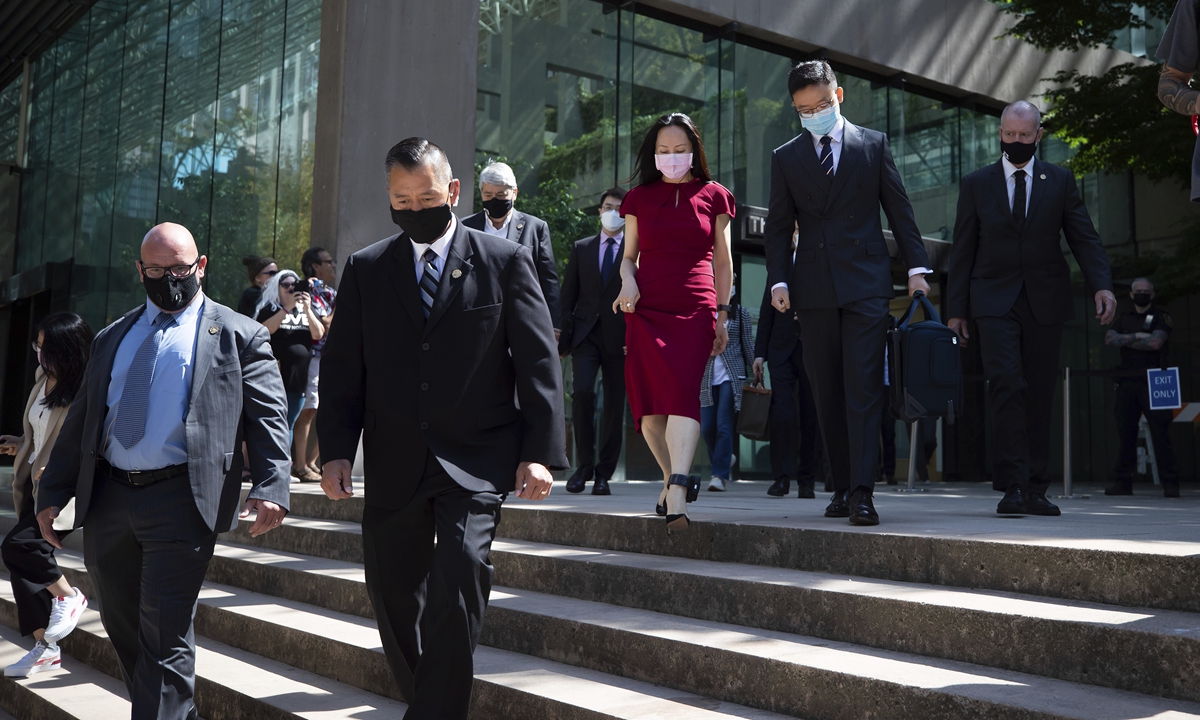
Meng Wanzhou, chief financial officer of Huawei, leaves the B.C. Supreme Court during a break in her extradition hearing on Tuesday local time in Vancouver, British Columbia. Photo: VCG
It also referred to Canada's arrest of Huawei CFO Meng Wanzhou at the behest of the US, saying that "Meng has never violated any Canadian law, but has been detained by Canada until today. Canada is acting as an accomplice of the United States, and this is a textbook example of arbitrary detention for 'exercising leverage over a foreign government.'"
Experts also said Washington has been weaponizing democracy, just as it has turned the tracing of coronavirus origins and other issues against China. As Biden approaches his deadline for intelligence agencies to hand over reports on the origins of the coronavirus, a source close to the matter told the Global Times on Tuesday that the US' push for the probes on virus origins was aimed at consuming China's diplomatic resources.
US media previously reported that details of the summit would be worked out earlier this year. Yet with three months to go, the White House still hasn't published its guest list, a fact experts said revealed certain countries' reluctance to join and the US incapacity of summoning its allies.
The flaws of the US democratic system have been exposed to the world, especially during the COVID-19 pandemic, its partisan squabbling, short-termism, selfish individualism and deep-rooted racism in the face of the pandemic, Li pointed out, saying that the US' declining credentials disqualifies it from convening a democracy summit.
A possible return of former president Donald Trump or other Republicans always keeps Western allies of the US on guard. Their interests have been deeply hammered by Trump's "America First" policies, said Li.
"Once bitten twice shy, some countries which bore the brunt of Washington's flip-flop may be cautious in jumping into US-formed cliques again," Li noted.


